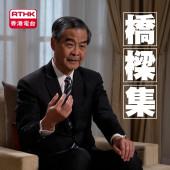 載入中 ...
載入中 ...
返回
Dear Hongkongers,
Our city is facing its toughest existential crisis since 1997. The mainland government has unilaterally nullified their promise to uphold “One Country, Two Systems,” a promise cemented by the signing of the Joint Declaration in 1984. They claim that the agreement is a mere historical artifact and no longer in effect. However, in Hong Kong, we will continue to treasure and safeguard the sanctity of the agreement.
A contract -- whether made between countries or between a government and its constituents -- must be kept. Without strict observation of the agreement, many will lose their trust in Hong Kong as a secure marketplace for financial transactions and business ventures; as a safe haven for intellectual diversity; and importantly, as a home for future generations. The erosion of Hong Kong as we know it has already begun. The wave of inquiries on emigration, the surging number of applications for BNO passports, and the increasing vacancy of the central business district are just the tip of the iceberg.
In 1990, Hong Kong’s Basic Law was promulgated on the principle of preserving “One Country, Two Systems,” as established in the Joint Declaration. This legal text served as the blueprint for the special administrative region. Importantly, the Declaration made clear that Hong Kong’s high degree of autonomy, rights, and freedoms would remain unchanged for fifty years. Yet, today, only 23 years after 1997, Beijing authorities are already actively and irrevocably undermining Hong Kong’s founding principles.
Last year, we were confronted with the extradition amendment bill. Now, the mainland government has completely bypassed Hong Kong’s legislature to enact a new National Security Legislation. In so doing, they have blatantly violated
Article 23, which grants Hong Kong the right and autonomy to “enact laws on its own to prohibit any act of treason, secession, sedition, subversion against the Central People’s Government.” In response to concerns that the mainland is infringing on Hong Kong’s autonomy, the Deputy Director of the Hong Kong and Macau Affairs Office of State Council, Deng Zhonghua, claimed that under “very special circumstances,” the mainland government reserves the right to interfere.
The National Security Act opens doors for the SAR and mainland administrations to persecute protestors, critics, and anyone who voices opposition, under the guise of safety and order. The legislation also severely undermines the autonomy of Hong Kong’s law enforcement. Under the National Security Act, the mainland government will set up a security office in Hong Kong to supervise and enforce the new law. Deng Zhonghua stated that the security office is an “unequivocal demand” of the National People’s Congress.
In mainland China, the national security legislation is commonly weaponized to oppress and silence critics of the government. Nobel laureate Liu Xiaobo and many other dissidents like Wang Quanzhang and Yu Wensheng have been charged with “inciting subversion of state power.” They were all jailed without proper and fair court proceedings. Liu Xiaobo died during his imprisonment and was never allowed to go to Norway to receive his Nobel Peace Prize. With the passing of the National Security Act, Hong Kong may follow the same dark path of political repression.
Beyond the mainland government’s infringement on our city’s founding principles, it is even more disappointing to see how local elites and government officials have turned their backs on Hong Kong people. Members of the Executive Council and many prominent business owners voiced their support for the legislation. Perhaps fearing backlash from China, top executives from companies like HSBC have also stood by the draconian law.
Even in the face of overwhelming public opposition, Carrie Lam and other principal officials have chosen to embrace this controversial legislation with open arms. An opinion poll conducted in May by the Chinese University of Hong Kong revealed that more than 64% of respondents disagree with the passing of the national security bill. The great majority of Hong Kong people already said “NO” to this piece of legislation forced by Beijing authority. Many Hongkongers have expressed their worries that the new National Security Legislation would jeopardize our freedom of speech and rule of law. Words cannot convey my frustration towards the SAR government’s failure in representing public will and safeguarding Hong Kong’s autonomy.
To intimidate voices of opposition, Chief Executive Carrie Lam has even called critics of the National Security Act “enemies of the people”. Anyone who is publicly opposing the national security bill will very likely face prosecution and other consequences. Just this week, Secretary for Constitutional and Mainland Affairs, Erick Tsang said that critics of the legislation may be barred from running in the upcoming LegCo election. By screening out candidates based on their political views, the SAR government is clearly interfering with the election process and violating the International Covenant on Civil and Political Rights. Given the SAR government is already openly threatening critics of the National Security Act, there’s no telling what they would do once the legislation is in effect.
For those of us who call Hong Kong home, we have no choice but to stand firm and fight against this intrusion into our city’s autonomy. If we choose to stand up for justice, we still have a chance to regain what we have lost. If we concede, we will lose everything once and for all. Add oil Honghongers!
Sincerely,
Kwok Ka Ki
Legislator Kwok Ka-ki
2020-06-21Dear Hongkongers,
Our city is facing its toughest existential crisis since 1997. The mainland government has unilaterally nullified their promise to uphold “One Country, Two Systems,” a promise cemented by the signing of the Joint Declaration in 1984. They claim that the agreement is a mere historical artifact and no longer in effect. However, in Hong Kong, we will continue to treasure and safeguard the sanctity of the agreement.
A contract -- whether made between countries or between a government and its constituents -- must be kept. Without strict observation of the agreement, many will lose their trust in Hong Kong as a secure marketplace for financial transactions and business ventures; as a safe haven for intellectual diversity; and importantly, as a home for future generations. The erosion of Hong Kong as we know it has already begun. The wave of inquiries on emigration, the surging number of applications for BNO passports, and the increasing vacancy of the central business district are just the tip of the iceberg.
In 1990, Hong Kong’s Basic Law was promulgated on the principle of preserving “One Country, Two Systems,” as established in the Joint Declaration. This legal text served as the blueprint for the special administrative region. Importantly, the Declaration made clear that Hong Kong’s high degree of autonomy, rights, and freedoms would remain unchanged for fifty years. Yet, today, only 23 years after 1997, Beijing authorities are already actively and irrevocably undermining Hong Kong’s founding principles.
Last year, we were confronted with the extradition amendment bill. Now, the mainland government has completely bypassed Hong Kong’s legislature to enact a new National Security Legislation. In so doing, they have blatantly violated
Article 23, which grants Hong Kong the right and autonomy to “enact laws on its own to prohibit any act of treason, secession, sedition, subversion against the Central People’s Government.” In response to concerns that the mainland is infringing on Hong Kong’s autonomy, the Deputy Director of the Hong Kong and Macau Affairs Office of State Council, Deng Zhonghua, claimed that under “very special circumstances,” the mainland government reserves the right to interfere.
The National Security Act opens doors for the SAR and mainland administrations to persecute protestors, critics, and anyone who voices opposition, under the guise of safety and order. The legislation also severely undermines the autonomy of Hong Kong’s law enforcement. Under the National Security Act, the mainland government will set up a security office in Hong Kong to supervise and enforce the new law. Deng Zhonghua stated that the security office is an “unequivocal demand” of the National People’s Congress.
In mainland China, the national security legislation is commonly weaponized to oppress and silence critics of the government. Nobel laureate Liu Xiaobo and many other dissidents like Wang Quanzhang and Yu Wensheng have been charged with “inciting subversion of state power.” They were all jailed without proper and fair court proceedings. Liu Xiaobo died during his imprisonment and was never allowed to go to Norway to receive his Nobel Peace Prize. With the passing of the National Security Act, Hong Kong may follow the same dark path of political repression.
Beyond the mainland government’s infringement on our city’s founding principles, it is even more disappointing to see how local elites and government officials have turned their backs on Hong Kong people. Members of the Executive Council and many prominent business owners voiced their support for the legislation. Perhaps fearing backlash from China, top executives from companies like HSBC have also stood by the draconian law.
Even in the face of overwhelming public opposition, Carrie Lam and other principal officials have chosen to embrace this controversial legislation with open arms. An opinion poll conducted in May by the Chinese University of Hong Kong revealed that more than 64% of respondents disagree with the passing of the national security bill. The great majority of Hong Kong people already said “NO” to this piece of legislation forced by Beijing authority. Many Hongkongers have expressed their worries that the new National Security Legislation would jeopardize our freedom of speech and rule of law. Words cannot convey my frustration towards the SAR government’s failure in representing public will and safeguarding Hong Kong’s autonomy.
To intimidate voices of opposition, Chief Executive Carrie Lam has even called critics of the National Security Act “enemies of the people”. Anyone who is publicly opposing the national security bill will very likely face prosecution and other consequences. Just this week, Secretary for Constitutional and Mainland Affairs, Erick Tsang said that critics of the legislation may be barred from running in the upcoming LegCo election. By screening out candidates based on their political views, the SAR government is clearly interfering with the election process and violating the International Covenant on Civil and Political Rights. Given the SAR government is already openly threatening critics of the National Security Act, there’s no telling what they would do once the legislation is in effect.
For those of us who call Hong Kong home, we have no choice but to stand firm and fight against this intrusion into our city’s autonomy. If we choose to stand up for justice, we still have a chance to regain what we have lost. If we concede, we will lose everything once and for all. Add oil Honghongers!
Sincerely,
Kwok Ka Ki
Politicians and public figures from a range of backgrounds take turns to have their say on important matters of the day in this personal view programme.
Catch it live: Sunday 8:15am - 8:25am
Podcast: Updated weekly and available after broadcast.











